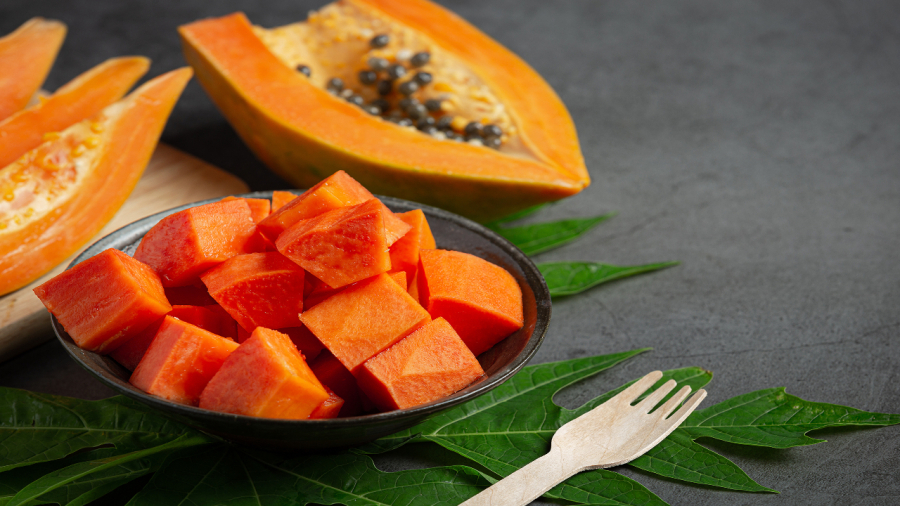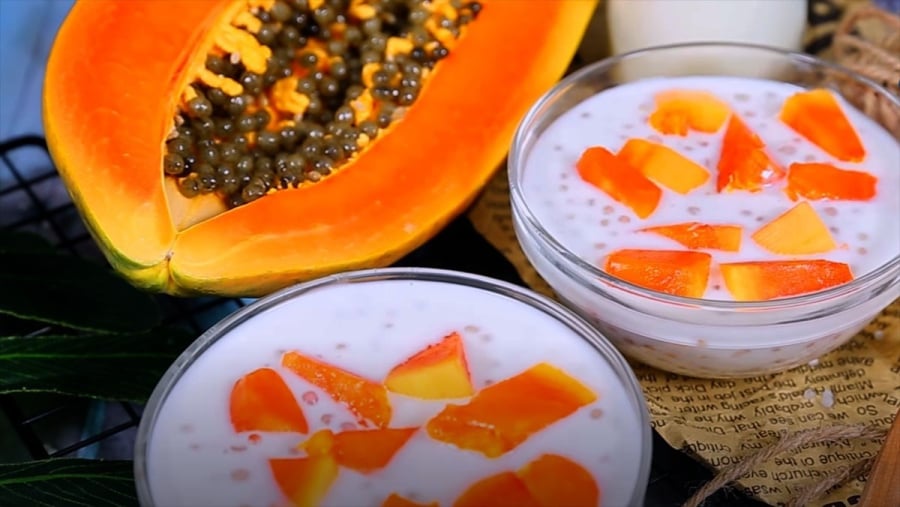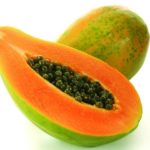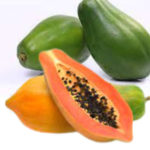Papaya is no stranger to the people of Vietnam. It is not only popular for its characteristic sweet and aromatic taste but also contains many high nutritional values.
According to information from the US Department of Agriculture, in 145g of papaya contains 43 calories, 0.5g of protein, 0.3g of fat, 11g of carbohydrates, 2g of fiber, 61mg of vitamin C, and 182mg of potassium.
“Papaya with its rich nutrients is no less than other tropical fruits, it is a source of supplements for the immune system, including vitamins A and C,” confirmed nutrition expert Sarah Schlichter from the US.

Papaya with its rich nutrients is no less than other tropical fruits, it is a source of supplements for the immune system.
Here are some outstanding benefits of this fruit.
Cancer prevention support
In a 2021 evaluation study published in the journal Antioxidants, scientists concluded that consuming a diet rich in vitamin C from fruits and vegetables can play an important role in preventing and treating cancer.
Papaya, with its high vitamin C content, is known for its strong antioxidant ability, it can block harmful free radicals and reduce oxidative stress – one of the causes of cancer cell formation. In addition, according to a study published in the journal Molecules, the vibrant orange color of papaya comes from lycopene – a substance with anti-cancer properties.
Blood sugar regulation
Recent studies have shown that papaya has the ability to support blood sugar reduction, thereby contributing to controlling blood sugar levels. With low glycemic index, papaya helps provide natural sugars to the body slowly, without causing a sudden increase in blood sugar. This makes papaya a suitable choice for people with diabetes.

Recent studies have shown that papaya has the ability to support blood sugar reduction.
Heart protection
Papaya is rich in fiber, potassium, and vitamins, which are essential nutrients for maintaining the health of arteries and promoting blood flow, thereby contributing to preventing heart disease. Increasing potassium and reducing sodium in daily diet is one of the important measures to adjust the diet, helping to reduce the risk of cardiovascular diseases. Papaya, with its high potassium content, is an excellent choice for supplementing potassium in the diet.
Slowing down aging
Ripe papaya is a rich source of vitamin C, vitamin A, and flavonoids, these beneficial nutrients help protect the skin, maintain youthfulness, and minimize wrinkles. Studies have shown that these nutrients act as powerful antioxidants, resisting the process of free radical formation and oxidative damage – the main factors of skin aging.

Ripe papaya is a rich source of vitamin C, vitamin A, and flavonoids.
Strengthening bone and joint health
A diet low in vitamin K can increase the risk of bone fractures. Vitamin K not only helps improve the body’s calcium absorption but also limits the amount of calcium excreted through excretion. Papaya is an abundant source of vitamin K, supporting the body in retaining more calcium, thereby strengthening and reconstituting bone structures, enhancing bone and joint health.
Protecting eyesight
Papaya contains essential nutrients such as lutein, zeaxanthin, vitamin C, and vitamin E, which play an important role in protecting the eyes and preventing eye diseases. Zeaxanthin, an antioxidant present in papaya, helps filter out harmful blue light, thereby protecting the eyes and preventing macular degeneration.
Notes when consuming papaya
Nutrition experts recommend that fermented papaya can help reduce blood sugar levels in type 2 diabetic patients. However, when combined with diabetes medication, fermented papaya can cause excessive blood sugar reduction. People taking anticoagulants also need to be cautious when eating papaya as it can enhance the effects of the medication, increasing the risk of bleeding and bruising.
Papaya is a nutritious and low-acid food, it can be eaten on an empty stomach without harming the stomach. If you are on a diet, avoid eating papaya in the main meals and it is best to consume it during lunchtime. Also, be aware not to eat the seeds of the papaya fruit.


































